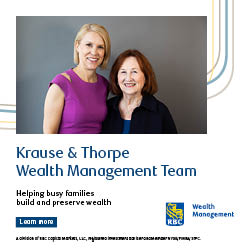As the days get longer and the weather gets better, it seems like more and more door-to-door salesmen and information peddlers ring the doorbell just as you’re sitting down to dinner. Terrie Johnston, Seattle Police Department’s Crime Prevention Coordinator for the North Precinct, has shared some tips on dealing with solicitors and how to know if they’re legitimate.
This is the peak time of year for door-to-door sales, including those using traveling sales crews. There are many legitimate companies in this industry with professionally trained salespeople, selling between the hours of 8:00am and 9:00pm, and a long history of law-abiding customer service. There are, however, less reputable companies in this business willing to take advantage of unsuspecting individuals who trust people knocking at their door. Sometimes residents forget to practice good personal safety.
Seattle Police officers respond to calls from citizens concerned about door-to-door salespeople. The results have ranged from the officers checking identification and sending the seller to the City of Seattle Revenue & Consumer Affairs office for their business license, to arrests of individuals posing as residential sellers, but wanted on warrants. There have also been arrests for aggressive behavior, threats made against the resident, burglaries, and assaults.
Homeowners may consider posting a sign indicating “No agents,” “No peddlers,” or “No Solicitors.” In Seattle, it is unlawful for any residential seller to attempt to gain admittance for the purpose of selling at any residence displaying one of these signs.
With these facts in mind, what should you do when a person knocks at your door?
BEFORE OPENING YOUR DOOR: LOOK FOR PROPER IDENTIFICATION. Acknowledge the knock since ignoring it may lead to an attempted burglary. It is preferable to speak to strangers through your door. In Seattle, all door-to-door sellers must display the residential sales identification which includes the seller’s photograph on their outer clothing. The residential sales agent’s license has the name of the licensee as well as the agent. It shall be endorsed with the type of product or service being sold. The license is only valid for the product or service specified. If you have any questions about whether a company is properly licensed, call the City of Seattle’s Office of Revenue & Consumer Affairs at 206-684-8136.
DISCLOSURE REQUIRED: Each residential seller shall, immediately upon contacting the prospective buyer, disclose their name, company and the product or service represented. If requested to do so, they shall leave the premises immediately. If the individual does not leave, or if an attempt to gain access is made by asking to use the bathroom, the phone or get a drink of water, refuse the request and ask the individual to leave. If you feel intimidated, pressured, or threatened at any time, call 911.
USE GOOD JUDGEMENT: It is safer not to allow the salesperson into your home. You are encouraged to avoid paying immediately. Do not give the salesperson cash or a check, as it may be pocketed and you will never receive the product ordered. Instead, find out from the seller how you can order directly from the company or receive the bill upon receipt of the product/service. If the salesperson is concerned about losing their commission for the sale, offer to provide their name when placing your order.
KNOW YOUR RIGHTS: In Seattle, if you make a purchase, the salesperson must tell you of your right to cancel the order and the contract must include a statement regarding the right to cancel. For each sale of ten dollars or more, the seller must provide a receipt or contract to the purchaser. Do not leave any blanks on your contract. Be sure the contract or receipt is dated and that it states the terms of the transaction, the amount of payment made and the name and address of the residential seller. It must also include a notice informing the buyer of their right to cancel the order any time prior to midnight of the third business day after the date of the transaction. A completed Notice of Cancellation (in duplicate) must be provided to the purchaser at the time they purchase from the seller. You do not need to provide a reason for canceling your order.
DO NOT GIVE IN TO HIGH PRESSURE TACTICS: Never be afraid to say “NO!” If a salesperson in your home tries to pressure you into buying their product, terminate your conversation with them. Take the time to contact the company directly if you still have interest in the product or service. Avoid making an immediate purchase in order to receive a “free gift.” If it sounds too good to be true, it probably is.


An excellent rule of thumb is that you do NOT need to buy anything that you did NOT initiate a contact on. Especially things like any home improvement thing (roof, windows, gutters, etc.), meat, magazines, and whatever else. If you need something, you should be the initiator of the search. Other folk are unwelcome and should be given the shout through the door.
I make exceptions for neighborhood kids selling Girl Scout Cookies, fundraisers for school trips, and of course on Halloween night.
I just point to the ‘no soliciting’ sign in my window… especially on Halloween night.
those fat little monsters don’t need more candy.
I have a no soliciting sign on my door that has been quite effective. The only “peddlers” who have ignored it were a couple of Mormon missionaries.
I just turn around and yell, “Gimp, we’s gots fresh meat!”
I just turn around and yell, “Gimp, we’s gots fresh meat!”
I just open the door and let the barking dog out.
I just open the door and let the barking dog out.
“There are many legitimate companies in this industry with professionally trained salespeople”
The preceding was an unpaid ad from the door to door salespersons’ public relations division.
I haven’t seen a legit dooer to door salesman in decades. Knock on *my* door at 8 in the morning and you better be the ghost of Ed McMahon with a million dollar check.